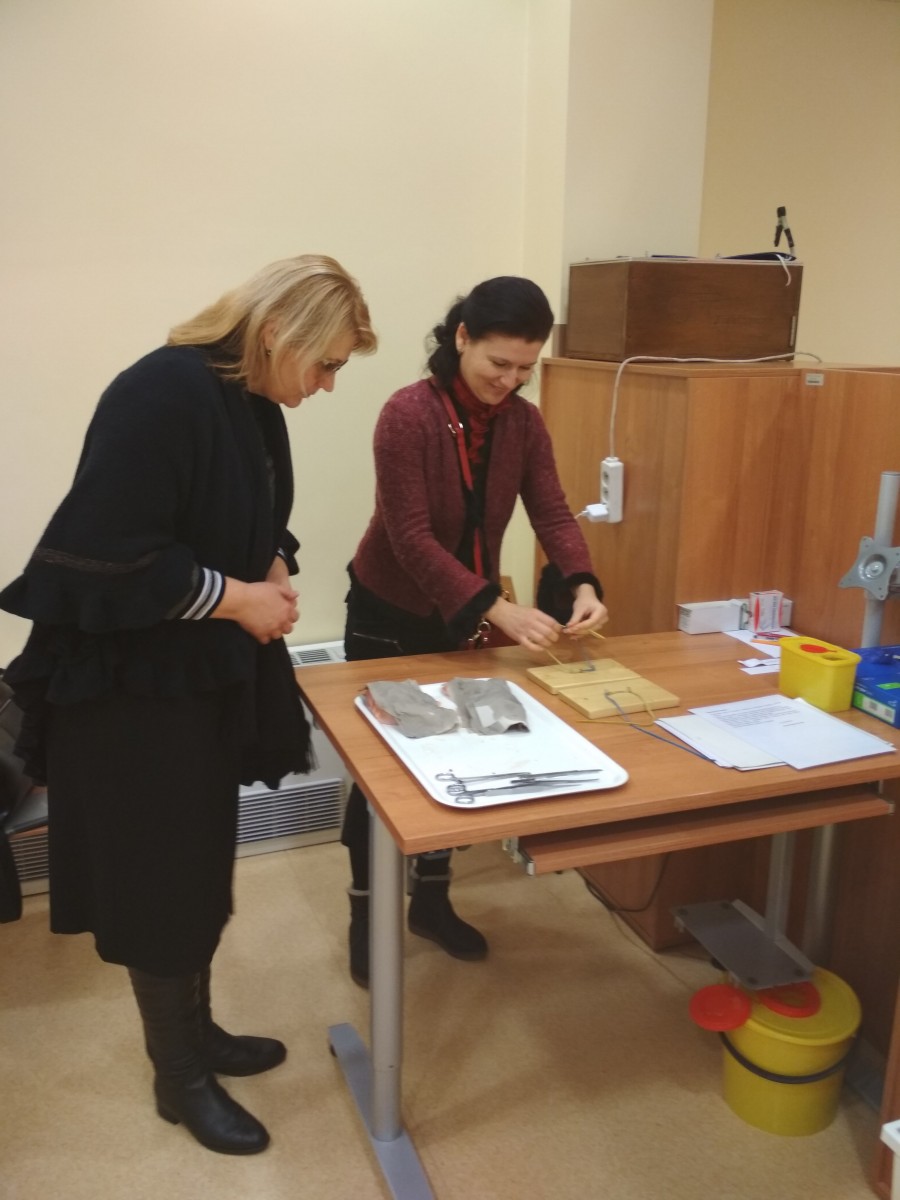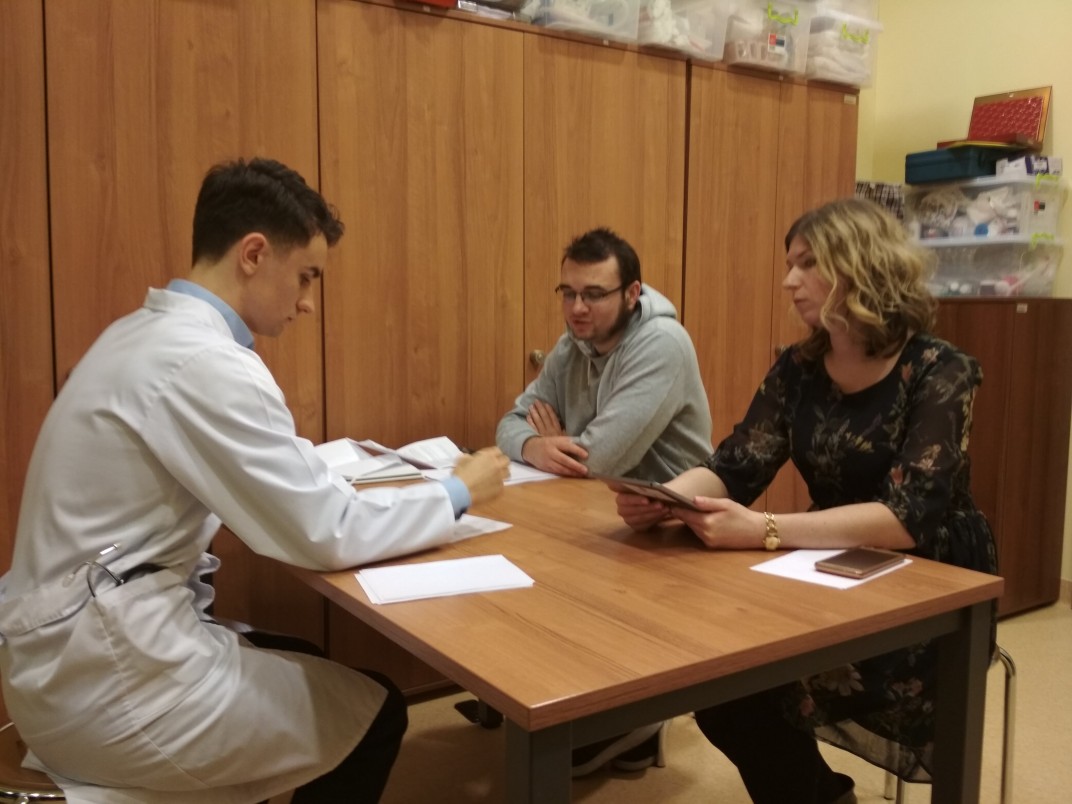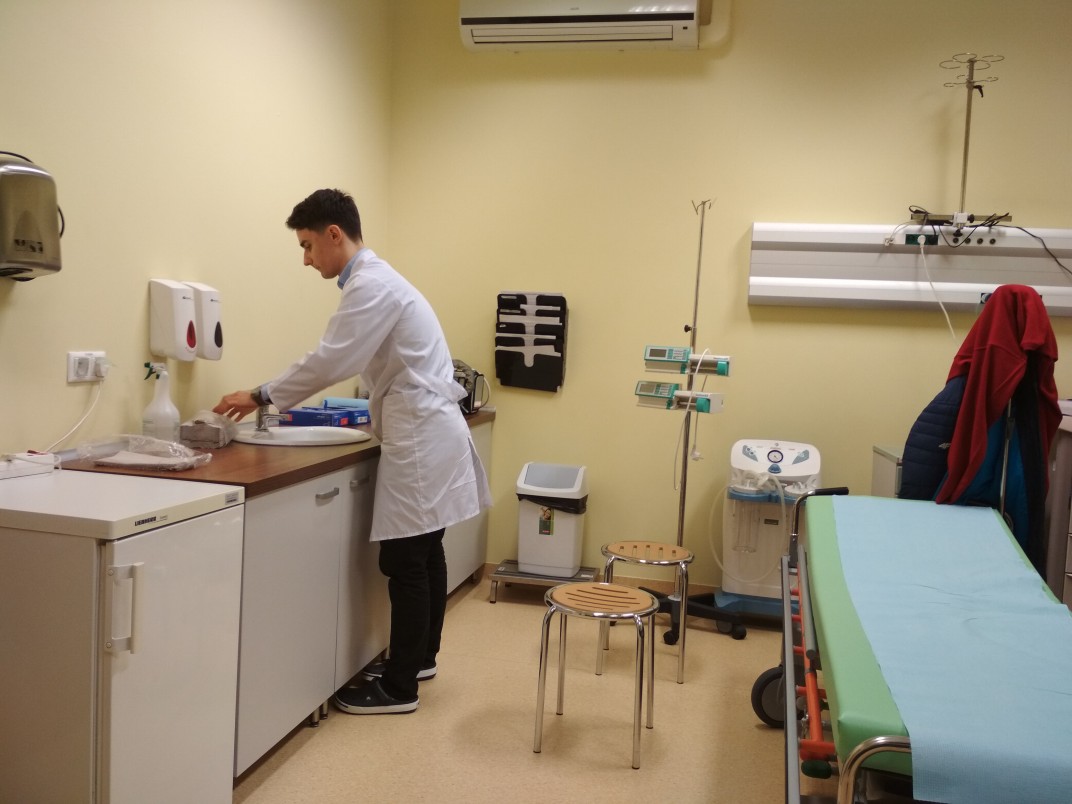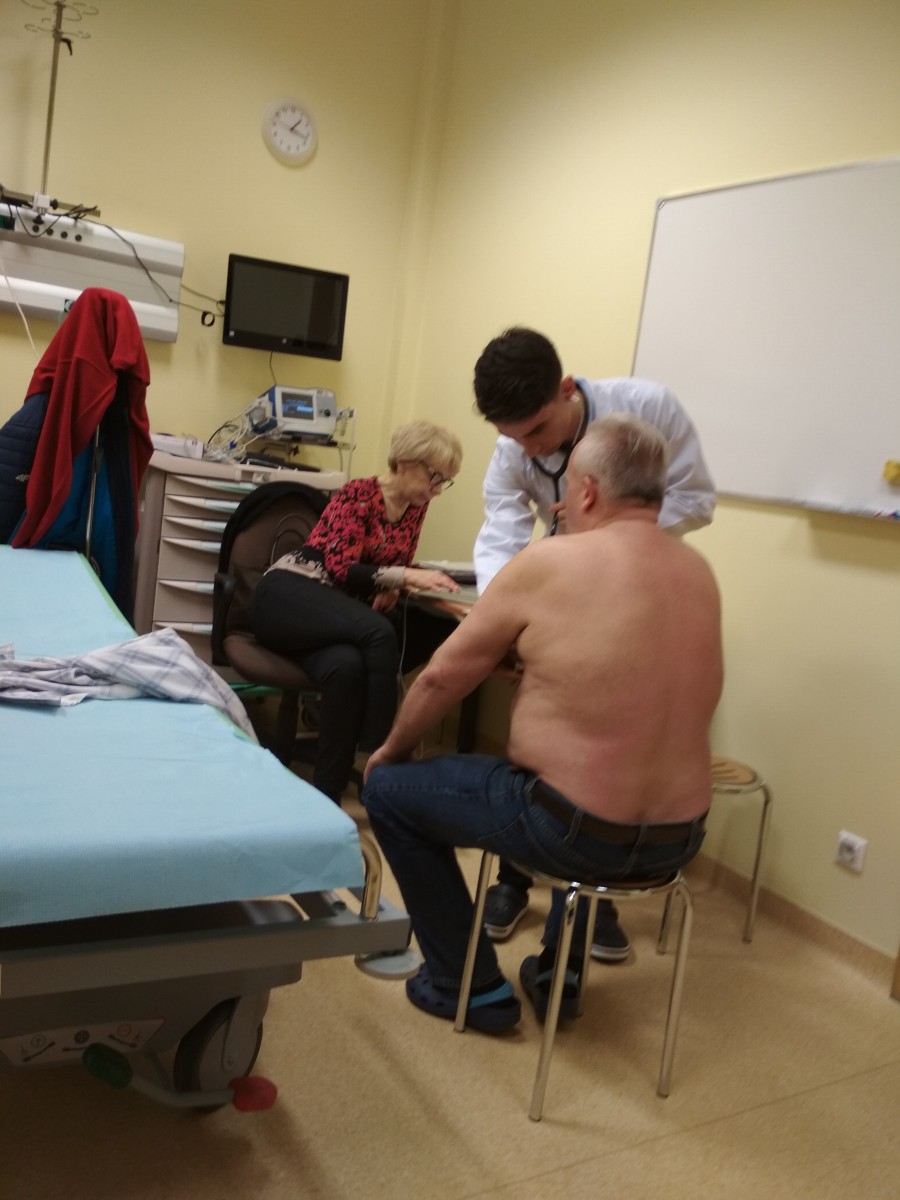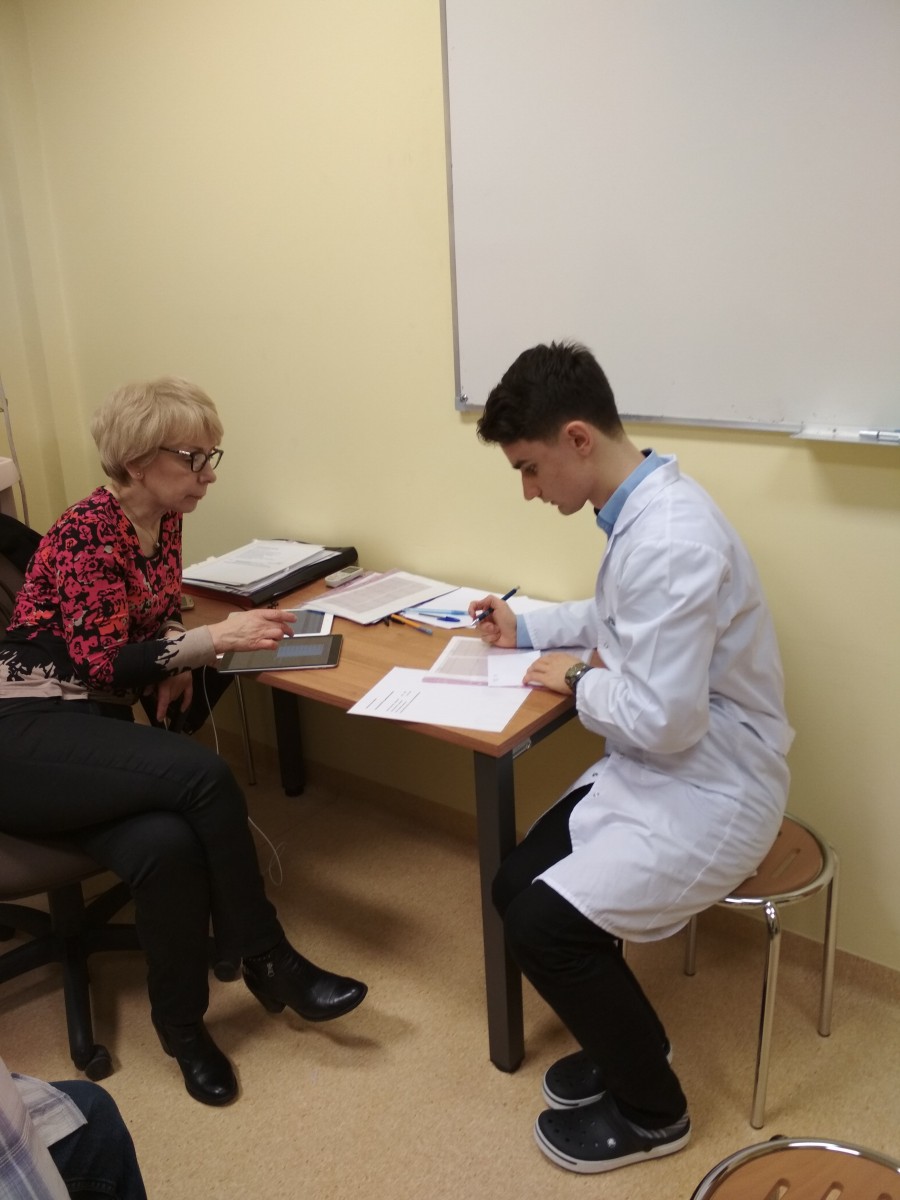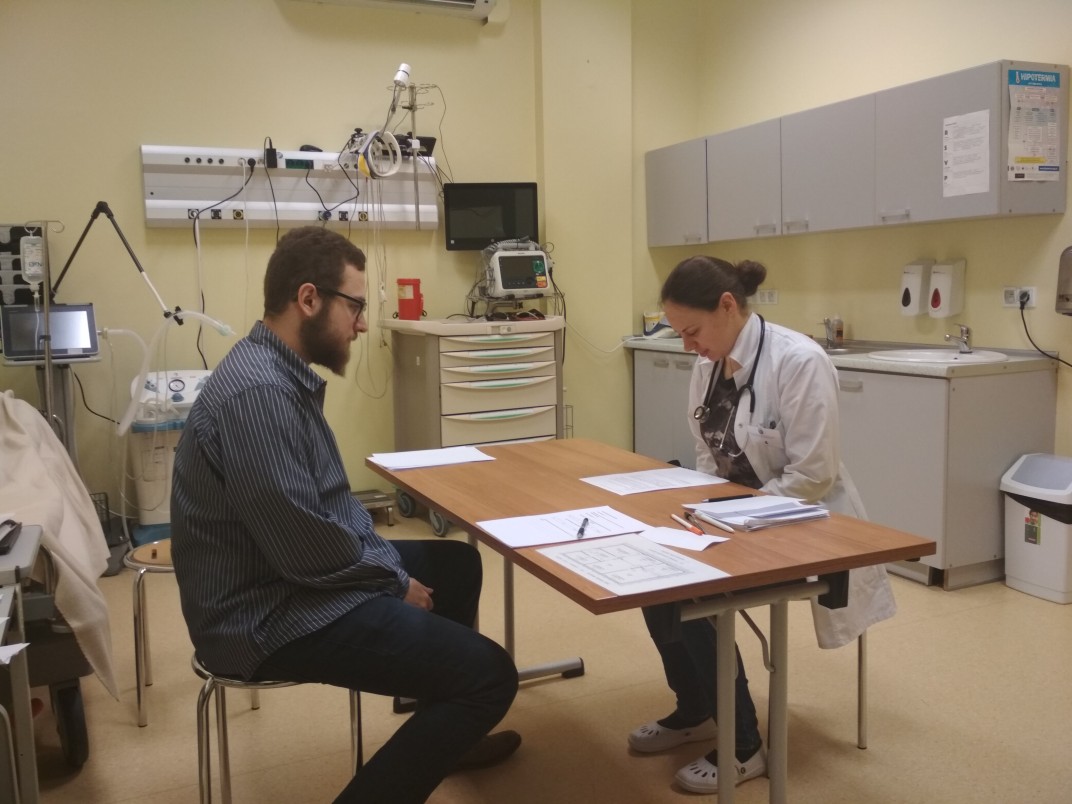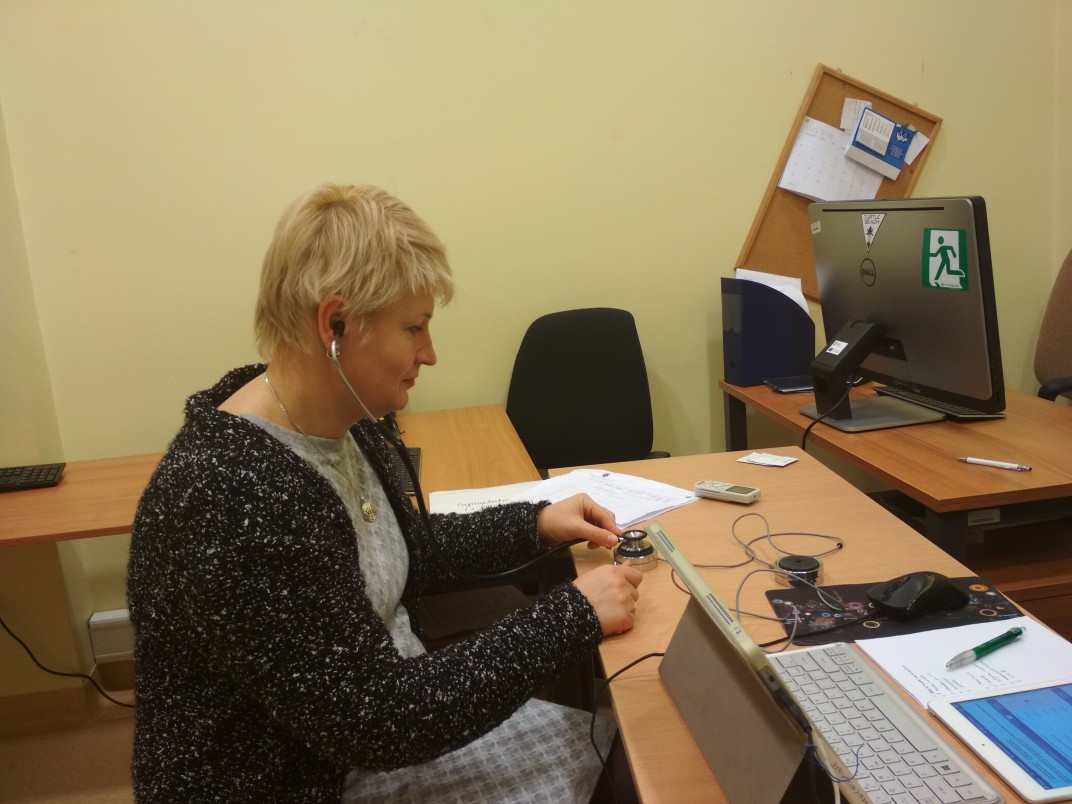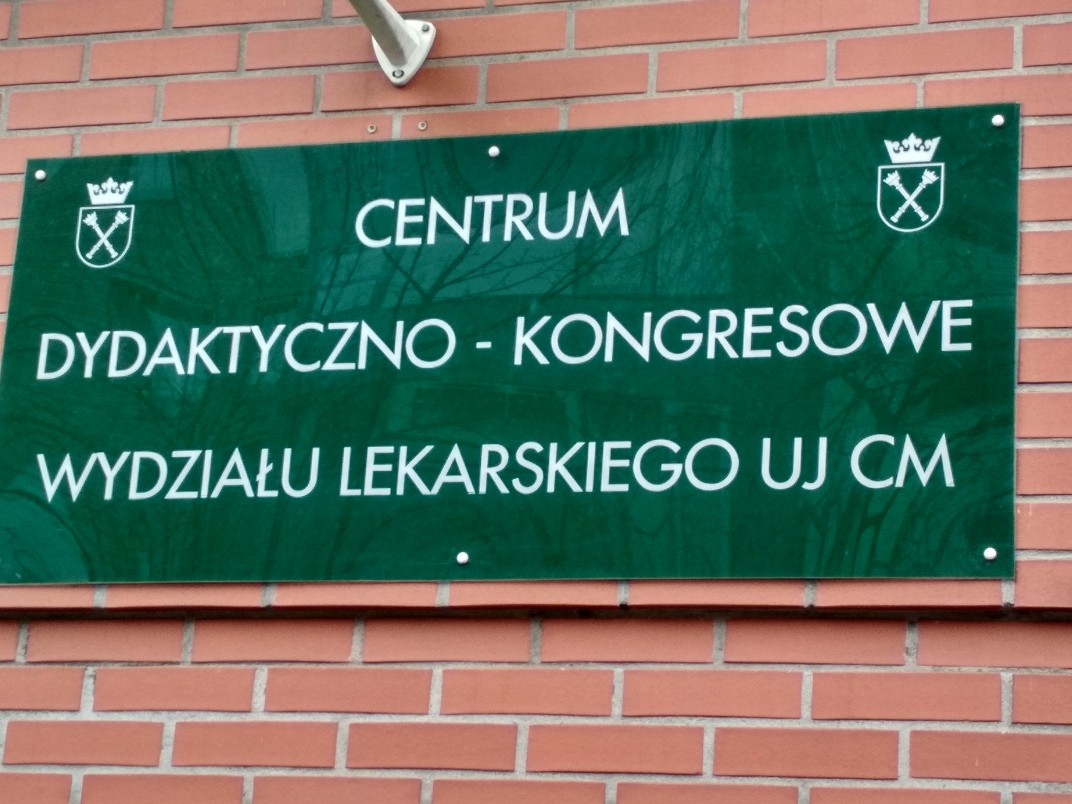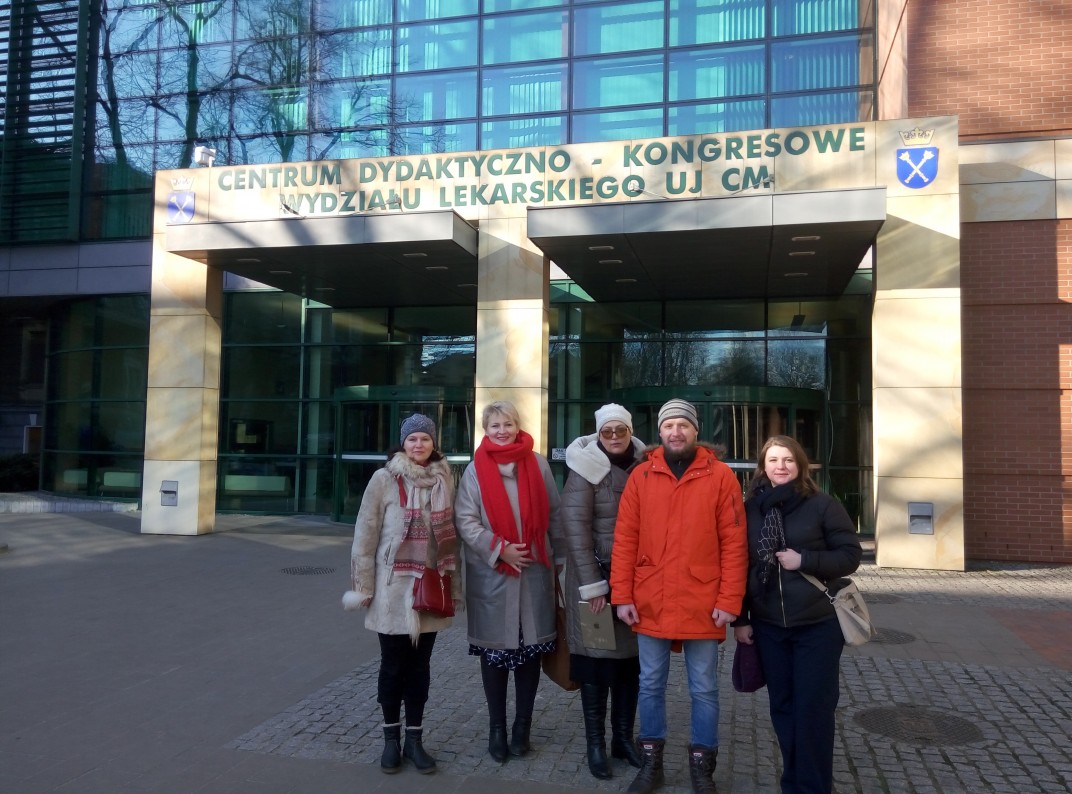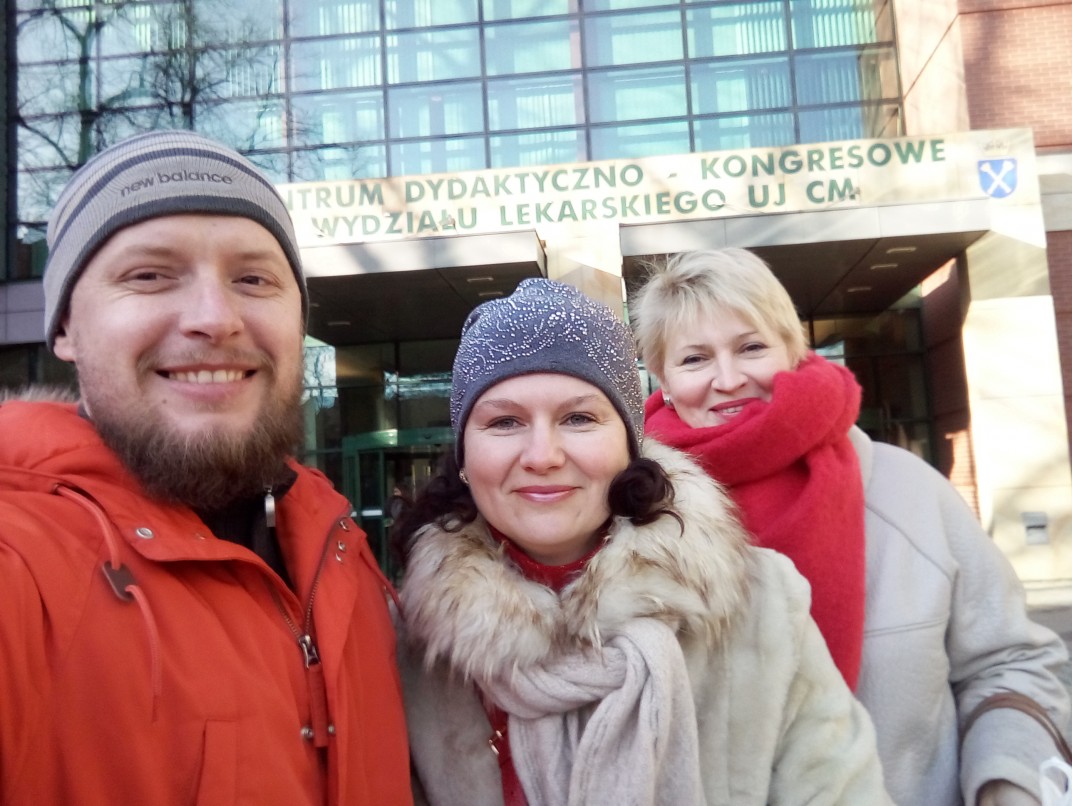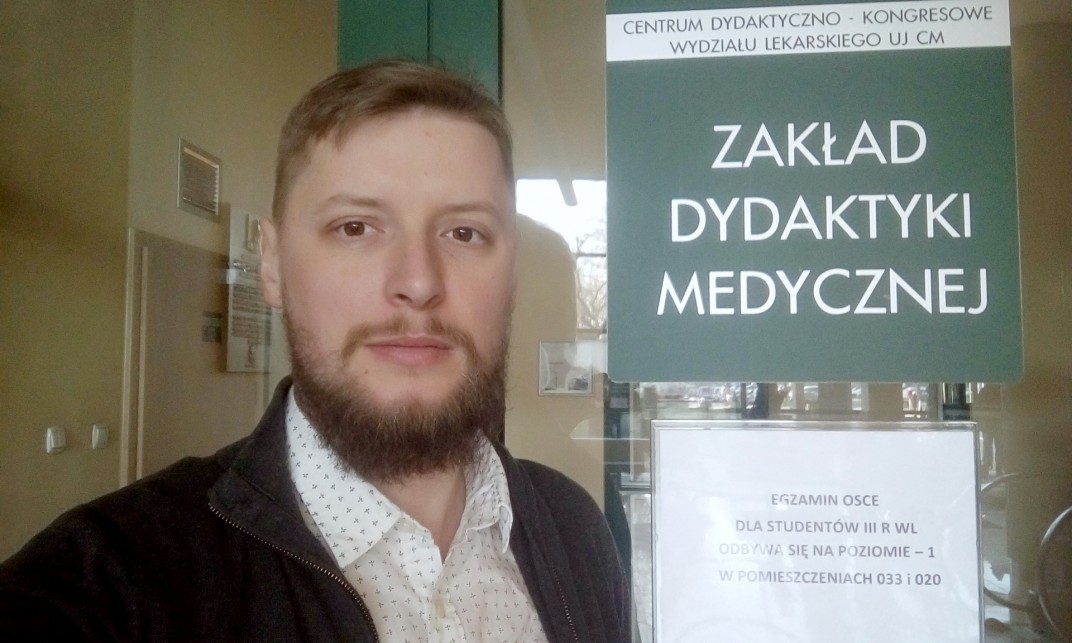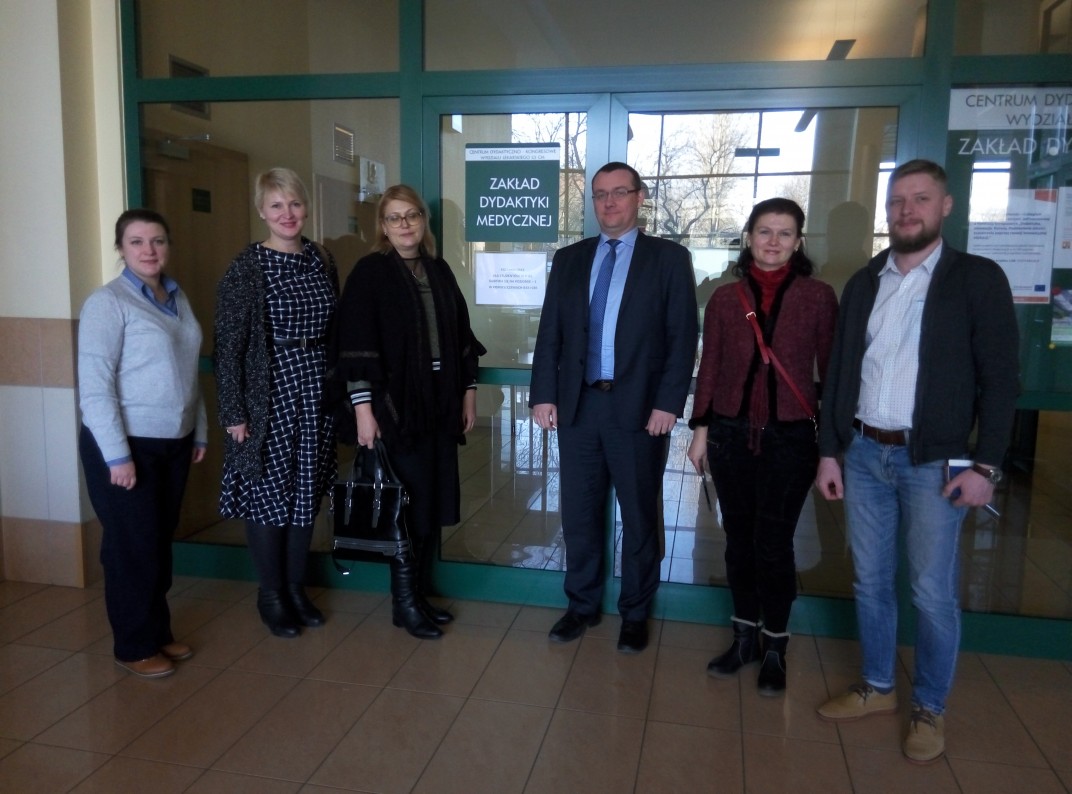PROBATION OF EMPLOYEES FROM NMU AT JAGELLONIAN UNIVERSITY (C. KRAKOW, POLAND) IN ORGANIZATION OF OSCE
Five employees of NMU – representatives from scientific pedagogical composition of pediatric profile (Oksana Vyhovska – dean at medical faculty No 3, professor at department of pediatric infectious diseases), therapeutic profile (Iryna Krasiuk – assistant professor at department of propedeutics of internal medicine No 2), Olena Karpenko – assistant at department of propedeutics of internal medicine No 2, Valentyn Taranchuk – assistant at department of propedeutics of internal medicine No 1) and surgical profile (Yelyzaveta Kozachuk – assistant at department of general surgery No 1) visited Yagellonian University, c. Krakow (Poland) in order to get acquainted with the peculiarities for organization and performance of objective structured clinical examination (OSCE).
The probation in organization and performance of OSCE started at department of medical education (didactics) at Yagellonian University. The head at department (division) of medical education – Doctor Mikhal Novakovski acquainted with organization of OSCE at Yagellonian University. Mr. Mikhal Novakovski told that the experience in performance of this exam at Yagellonian University reaches 15 years. Recently, the technical provision with performance of exam has significantly been improved. Now, starting from the second course, the students pass through OSCE of different level each year. The time for visit of delegation from NMU coincided to OSCE for students of the 3rd course. The specialists from NMU were provided with the possibility to learn the provision with performance of OSCE. The exam is held at special premise of university, where there are the numbered rooms-stations, room for technical provision, sanitary premises and place for waiting.
8 stations are anticipated at the 3rd course for performance of OSCE, and, thus, one group from 8 students can pass through exam at the same time. 6 such groups passes through exam for one day, the tasks are changed at stations for each group. The exam last 6 days. Stations: – surgical, gynecological and obstetrician )examination of pregnant women and intravaginal examination of phantoms), pediatric (collection of anamnesis), auscultation (respiratory and cardiac noises) – 10 sounds per one minute for identification, for positive result it is necessary correctly to define 6 sounds, – collection of anamnesis for adult, – physical examination and conclusion from laboratory research, – physical examination and interpretation of ECG, – persuasion of patient. Mr. Novakovski paid attention that the special attention at the 3rd course is paid to assessment of communicative skills of students. The students start studying the communicative skills at department of didactics and continue at clinical and specialized departments. The communication of student with patient is assessed first of all at the 3rd course. The valuable technical skills are improved at senior courses at all departments and include not only the communication of doctor with patient but the communication between doctors, colleagues, including the situations for performance of transfer of patient to another department, arrangement about consultations are modeled. Finally, already at graduate course they assess the ability of student to work in team and to communicate, especially with serious patients. It is expected that a student of the 2nd course knows the scheme for inquiry, which questions shall be put to patient, and a student of the 3rd course shall know how to question a patient.
“The acquaintance with station for persuasion of patient was new for us. The students of the 3rd course were suggested with some kinds of scenario. According to which a student shall persuade a patient with a certain pathology to pass through research”, – mention the colleagues from NMU. Our teachers were provided with the possibility to watch directly for performance of OSCE. Mr. Novakovski introduced the specialists from NMU to employees and students and received the consent from students for their presence. The representatives of delegation from NMU could inspect each station before performance of exam and watch for performance of exam at each station as long as necessary. The variants of stations:
- Auscultation of the heart and lungs (in audio record per 5 variants for auscultation of the heart and 5 variants for auscultation of the lungs). Time – 10 minutes.
- Questioning a patient. Both a teacher and a patient put the mark. Time – 10 minutes.
- Station with 2 tasks. Time – 10 minutes. 1) To perform the examination of patient (palpation of the stomach, auscultation of the lungs, etc.); 2) To interpret ECG.
- Station of communicative skills – to persuade a negatively spirited patient to perform the examination (to take the urine test, to make glucose tolerant test, etc.). Both a teacher and patient put the mark. Time – 10 minutes.
- Station with 2 tasks. Time – 10 minutes. 1) To perform the examination of patient (to define the achylic reflex); 2) To interpret the general blood test of child.
- Pediatric station. To perform the questioning the child’s mother. Time – 10 minutes.
- Surgical station. To perform the surgical manipulations: to tie stitches, to close up a wound. Time – 10 minutes.
- Obstetrician gynecological station. 1) To perform the assessment for condition of cervix of the uterus on the moulage using the research in mirrors; 2) to assess the presentation of the fetus on moulage using the bimanual examination. Time – 10 minutes.
On the second day they discussed the results from work of the first day. Doctor Novakovski comprehensively answered the questions by teachers of NMU, described what problems and tasks are set to their university, told about peculiarities of pedagogical process, which allow preparing for OSCE. The problem is that the students learn much theoretical material, which they practice later, during other time or in general do not practice timely.
The regulation for performance of OSCE:
- 4-6 shifts per day with breaks. One shift anticipates conducting the exam at 8 students (80 minutes = 8 students per 10 minutes in station).
- The students change their clothes and receive the instructing, personal papers (list with personal data, succession of stations).
- The students go around in circles due to the scheme according to audio signal (they keep the manual bell as tradition). The general scheme of premises is in each room on the table of the teacher, the students on paper have the succession of stations, where to pass. The students do not have any possibility to communicate between themselves.
- The tasks (standardized patients) are changed for new ones each shift.
- The students receive the results to e-mail or on the website.
- On the following day there is the possibility to retake it.
Conveniences for student:
- Training on similar moulages at clinical departments during learning period.
- Sufficient amount of material for fulfillment of skill (rubber gloves, one time surgical suture material, etc.).
- Room for rest, change of clothes, toilets not far away from stations.
- Instruction on hands, which mentions the successions to pass the stations.
- Sufficient time for fulfillment (most students perform the task for 7 minutes).
- Convenient location of stations.
Conveniences for teacher:
- They work in 1-2 shifts per day during period of OSCE, breaks between shifts.
- The teacher performs the assessment on tablet, connected to general computer center, which runs the calculation.
- Convenient means for performance of skills.
- A station is a separate room (the noise does not impede during performance of skill; no one enters and leaves during 10 minutes).
- The standardized patients fill in the assessments on hard copies.
Advantages of educational process:
- OSCE is held at the end of the 1st semester in the 3rd
- 5-6 students in groups at clinical departments.
- ECG is taught during 6 months (the students have rather high percent of successful interpretation of ECG-task at OSCE).
- The training is held on similar moulages at clinical departments.
- There is the department of medical didactics (formation of communicative skills at student).
Problems of students’ communication at OSCE:
- Impossibility to act independently under conditions, other than those ones that at classes (without group, without supervision of teacher).
- Communicative deficit during a year of study.
- Absence of experience in similar practice.
- Personal communicative and psychological problems of student.
The study of experience in organization and performance of OSCE at Jagellonian University allows improving the procedure and preparation for performance of OSCE-1 for students of the 3rd course in 2018.
International Relations Department




